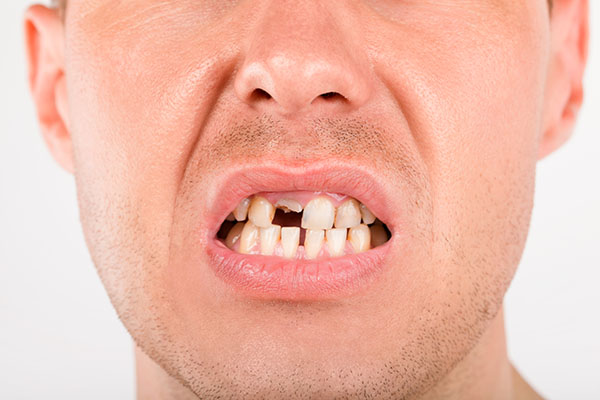5 Examples of Routine Dental Procedures

General dentists perform several routine dental procedures, which can refer to a number of treatments. Continue reading to learn more about what treatments are considered routine dental procedures.
5 Routine dental procedures
Outlined below are five examples of routine dental procedures commonly performed by a general dentist:
Cavity treatment
Cavities are hard to avoid and they are quite common. Thankfully, a general dentist can perform a routine dental procedure to address them. Most commonly, cavities are treated via dental filling placement, crown placement, or root canals.
Dental fillings are for mild to moderate-sized cavities whereas dental crowns are used to address moderate to severe cavities. If a root canal is needed, the tooth is likely decayed and requires a full restoration, with a dental crown.
Cleanings
Cleanings are the most common routine dental procedures. The teeth should be professionally cleaned every six months unless the dentists determine that more frequent cleanings are required. For example, those that have gum issues or are at high risk of developing cavities.
During a dental cleaning, a hygenist will carefully clean each tooth to remove built-up plaque or tartar. The teeth and entire oral cavity will be rinsed afterward to rid of any debris.
Teeth whitening
Another routine dental procedure that is commonly performed in a general dentistry setting is teeth whitening. When the teeth start to stain, it is usually advised to undergo whitening in a professional setting. Dentists have access to stronger products that are effective for lifting stains.
During a teeth whitening treatment, the dentist will clean the teeth thoroughly and then dry their surface. Next, the whitening solution will either be directly applied to the teeth via liquid or a tray will be used with a gel-like substance. Typically, the patient sits patiently for 30 minutes or less while the solution whitens the teeth and lifts stains. Next, a curing light is used to ensure that the solution sets in place.
The dentist will also recommend a number of tips to reduce staining after the whitening procedure has been performed. It is advised to avoid dark-colored beverages, such as wine, tea, and coffee. In the event that these beverages are unavoidable, it is recommended to drink water afterward to help rinse the teeth.
Fluoride treatment
Fluoride treatment is one of the most common routine dental procedures as dentists recommend it at least twice a year or every six months for some patients.
Despite the controversy surrounding fluoride, it has been proven to be beneficial for the teeth when used in moderation. During a fluoride treatment, the dentist will dry the teeth after the cleaning has taken place. Then, a tray is typically filled with fluoride in gel or liquid form. The tray is then inserted into the oral cavity where the patient is asked to bite down for a number of minutes. Typically, the fluoride treatment does not last longer than three to four minutes.
Dental sealant placement
Another common routine dental procedure that is performed in general dentistry is dental sealant placement. Dental sealants are used to prevent cavities. Of course, there is no sure way of preventing cavities as a whole, but having a general dentist apply dental sealants is a great step toward keeping the teeth in optimal health.
During a dental sealant placement procedure, the general dentist will thoroughly clean and dry the teeth. Next, the sealant material, which is simply a plastic liquid, is applied directly to the surface of the teeth via a brush. The dentist will carefully and precisely apply the liquid ensuring that each necessary surface is covered. In addition, the dentist will be sure to avoid gum tissue.
The dental sealant placement procedure is common among children because they are at a higher risk of developing cavities due to high-sugar consumption and improper brushing techniques. However, adults can also undergo dental sealant placement as a way to avoid cavities from developing.
Ready to schedule your appointment?
When needing a routine dental procedure, the best place to start is by consulting with a general dentist directly. A thorough evaluation can be performed, which will include an oral examination, a discussion of health history, and an opportunity for questions and concerns to be addressed. This evaluation will help the dentist to determine what type of treatment might be necessary.
To find out more about routine dental procedures or to get scheduled for an appointment, reach out today.
Request an appointment here: https://gkdentaloffice.com or call GK Dental PC at (617) 826-6075 for an appointment in our Everett office.
Check out what others are saying about our dental services on Yelp: Routine Dental Procedures in Everett, MA.
Recent Posts
There are many routine dental procedures patients typically experience annually. The most common elements of dental checkups include X-rays and a cleaning. However, what happens if there is a problem with the gums? Even the most diligent patient may sometimes miss the early warning signs of gum disease. In this case, the dentist may perform…
Keep your teeth clean, smile more and be happier in the process. Routine dental procedures are the secret to a better lifeWe use routine dental procedures during our appointments to ensure that a patient maintains healthy teeth. You can keep oral hygiene habits at home but will need professional cleaning at least twice a year.Routine…
A general dentist performs general dentistry services and can serve as the first point of contact for patients who need other types of dental care. Some services, such as dentures, may require a referral to a dentist who focuses on a specific area of dentistry.The general dentist is usually responsible for preventative care, such as…
In August of 2016, the benefits of flossing were brought into question by people finding a lack of sound evidence on flossing having health benefits for one's teeth. Thus, kids and adults subjected to countless years of placing the minty thread between their teeth, stopped and scratched their heads. The truth of the matter is…


